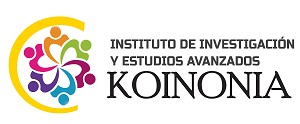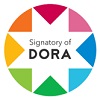Alimentos transgénicos y su contenido nutricional
Resumen
El como objetivo general de la presente investigación fue describir los alimentos transgénicos y su contenido nutricional. Se desarrolló desde el paradigma positivista con enfoque cuantitativo, además un diseño documental-bibliográfico, a través de la exploración, recolección y análisis crítico mediante, la búsqueda, la reflexión y análisis, construyendo métodos relacionados al discernimiento del fenómeno y así evaluar o considerar nuevos contextos. Se revisaron y analizaron fuentes documentales a nivel teórico y trabajos arbitrados y tesis vinculadas con los aspectos centrales del trabajo. La técnica de interpretación de la indagación, se consideró el análisis de contenido de la información recopilada, lo que permitió la formulación de resultados. Se concluye que, el valor nutricional de los alimentos transgénicos contribuye al fortalecimiento de algunos productos que son mejorados por dicha técnica genética, lo que permite la modificación mediante la introducción de otros genes para lograr los rasgos deseados.
Descargas
Citas
Altamirano Huerta, H. J., y Marissa Margarita, R. S. (2022). Transgénicos: ¿el futuro o un peligro?. [Transgenics: the future or a danger?]. JÓVENES EN LA CIENCIA, 13, 1–6. Recuperado de https://n9.cl/muwrp
Bianco, M. (2015). El valor de la semilla: Propiedad intelectual y acumulación capitalista. [The value of the seed: Intellectual property and capitalist accumulation]. Revista de Ciencias Sociales, 28(36), 37-54. Recuperado de https://n9.cl/fkhi2
Bravo, E., Cárcamo, M., y Manzur, M. (2017). Creando redes por una América Latina libre de transgénicos. [Networking for a GMO-free Latin America]. Letras Verdes, Revista Latinoamericana de Estudios Socioambientales, (22), 166-181. https://doi.org/10.17141/letrasverdes.22.2017.2676
Espí García, L. (2021). Seguridad alimentaria de los alimentos transgénicos y el comportamiento del consumidor. [Food safety of genetically modified foods and consumer behavior]. Tesis de Grado. Universitat Politécnico de Valencia. Recuperado de: https://n9.cl/decxc
Garro-Monge, G. (2017). Inocuidad de cultivos y alimentos biotecnológicos, “20 años de comercialización”. [Crop and biotech food safety, "20 years of commercialization"]. Revista Tecnología en Marcha, 30 (2), 67-74. https://dx.doi.org/10.18845/tm.v30i2.3198
Hinojosa Juárez, A., Mendieta Zerón, H., Vargas Hernández, J., Anaya López, L. (2016). Alimentos transgénicos, pros y contras. [Transgenic foods, pros and cons]. Inteligencia Epidemiológica,6(2);30-39. Recuperado de: https://n9.cl/5fzvw
Jácome Pilco, C., Alucho Quinaloa, M., Muyulema Cuvi, E., Tulmo Negrete, E., y García Muñoz, M. (2023). Alimentos transgénicos: sus beneficios para la nutrición en América Latina y el Caribe. [Gm foods: its benefits for nutrition in Latin America and the Caribbean]. LATAM Revista Latinoamericana de Ciencias Sociales y Humanidades, 4(1), 1489–1503. https://doi.org/10.56712/latam.v4i1.354
Lara O´Farril, L. (2021). Transgénesis: una aproximación a sus riesgos y beneficios. [Transgenesis: an approach to its risks and benefits]. Acta Médica del Centro, 15(1), 141-155. Recuperado de https://n9.cl/by1pm
Luque Polo, K. (2017). Seguridad alimentaria y alimentos transgénicos. [Food safety and transgenic foods]. Tesis de Maestría. Universidad Complutense de Madrid. Recuperado de: https://n9.cl/og5p8
Molina Heredia, R. (2020). Transgénicos y su regulación en el país. [Transgenics and their regulation in the country]. Tesis de Grado. Universidad Católica de Cuenca. Recuperado de: https://n9.cl/cw87qu
Palella, S. y Martins, F. (2012). Metodología de la Investigación Cuantitativa. [Quantitative Research Methodology]. Fondo Editorial de la Universidad Pedagógica Experimental Libertador. Caracas. Venezuela
Rodríguez Penagos, G. (2015). La transformación genética como alternativa en la biofortificación de alimentos para disminuir la desnutrición en los países pobres. [Genetic transformation as an alternative in the biofortification of food to reduce malnutrition in poor countries]. Tesis de Grado. Universidad Nacional Abierta y a Distancia. Recuperado de: https://n9.cl/tl6u3
Traversa Tejero, I. P. (2021). Diagnosis de alimentos con origen transgénico en la frontera Uruguay-Brasil: legislación, conocimiento y rotulado. [Diagnosis of food with transgenic origin at the Uruguay-Brazil border: legislation, knowledge and labeling]. RESPYN Revista Salud Pública y Nutrición, 20(4), 47–56. https://doi.org/10.29105/respyn20.4-5
Wilches Ortiz, W. A., Cruz Castiblanco, G. N., y Sandoval Cáceres, Y. P. (2022). Beneficios de los alimentos transgénicos biofortificados, una revisión del 2012 al 2022. [Benefits of biofortified transgenic foods, a review from 2012 to 2022]. Revista Ciencia y Tecnología El Higo, 12(2), 81–102. https://doi.org/10.5377/elhigo.v12i2.15229
Derechos de autor 2023 Paula Lorena Erazo-Morales, Zila Isabel Esteves-Fajardo

Esta obra está bajo licencia internacional Creative Commons Reconocimiento-NoComercial-CompartirIgual 4.0.
CC BY-NC-SA : Esta licencia permite a los reutilizadores distribuir, remezclar, adaptar y construir sobre el material en cualquier medio o formato solo con fines no comerciales, y solo siempre y cuando se dé la atribución al creador. Si remezcla, adapta o construye sobre el material, debe licenciar el material modificado bajo términos idénticos.
OAI-PMH URL: https://cienciamatriarevista.org.ve/index.php/cm/oai














